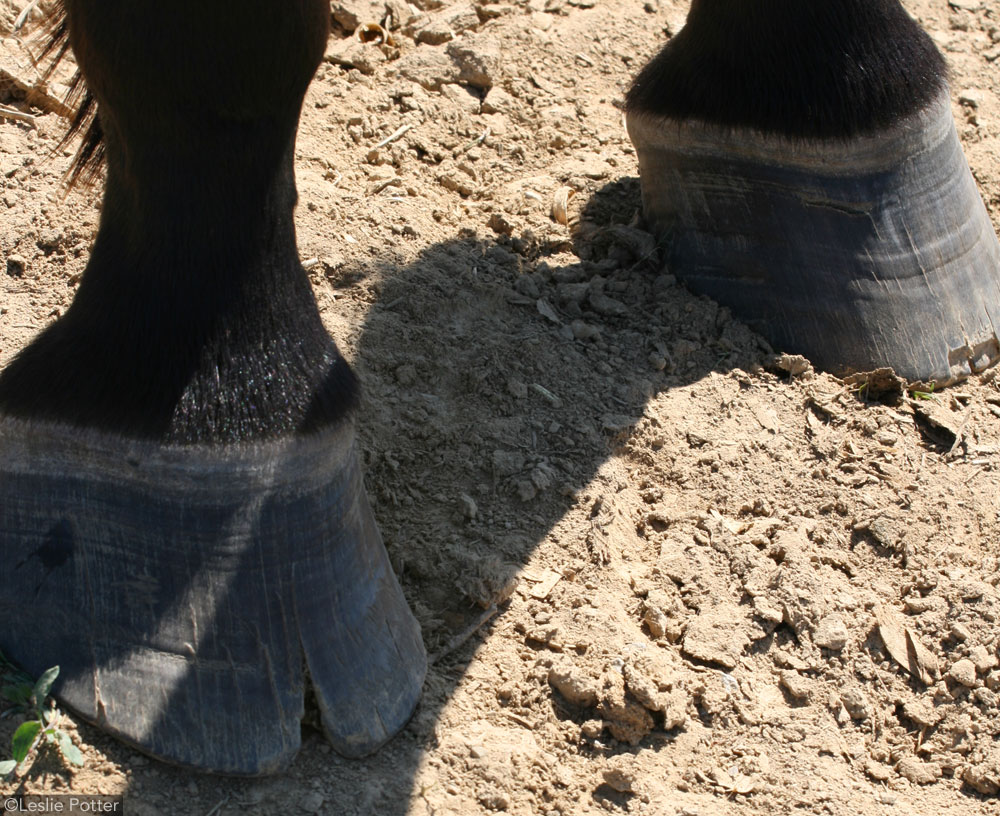Ask the Vet: Cushing’s Disease and Cracked Hooves


In our Ask the Vet column, Dr. Lydia Gray answers your horse-health questions at horseillustrated.com/AskTheVet. Got a question for Dr. Gray? Send it to hc-editor@i5publishing.com and use subject line “Ask the Vet.”
Q: I have 24-year-old gelding who is arthritic and has Cushing’s disease. His hooves have begun to chip and crack a lot more this past month despite him having access to a mineral and salt block, high quality grass and hay, and grain. All of the other horses who live with him have perfectly fine hooves that are strong and healthy with no cracks or chips. What could be causing this?


A: Whenever I’m presented with a question like this, first I want to make sure you’re working closely with a veterinarian; next that your horse’s nutritional needs are met; and finally that you, your vet, and your farrier have discussed all the possible reasons for a change in your gelding’s hooves. With all the bases covered, your horse will have the best shot at success!
Since you have a diagnosis (Cushing’s disease or Pituitary Pars Intermedia Dysfunction), I’m going to assume you already have a good relationship with a vet who sees your senior equine on a regular basis, performing exams and diagnostic tests to see how well he is doing and catch any new problems early. If so, that vet has probably already prescribed Prascend for your gelding, the FDA-approved pergolide medication for horses. Your vet has probably also told you that Cushing’s has effects throughout the body, such as delayed or loss of shedding, muscle atrophy, fat pads, recurrent infections, and more. What’s happening in your senior horse’s body as a result of aging and this condition could be contributing to the recent changes in his hooves.
Next, even though the diet you describe might have been meeting your gelding’s needs when he was younger or didn’t yet have Cushing’s, now that he is more advanced in age and has been diagnosed with true disease it’s possible he could require a higher plane of nutrition just to maintain his health. Measure your gelding’s body condition score and weight then evaluate his forage; his proteins, vitamins, and minerals; and his calories (especially how many are coming from sugars and starches) and see if his diet is complete, balanced, and appropriate for his age and medical status. Because older horses may be less efficient at digesting and absorbing their food, it may be time to add in specific nutrients to help your gelding cope with his changing body such as biotin, essential amino acids, or certain vitamins.
Finally, include your farrier in discussions about your horse’s hoof health, and see if he or she has any ideas why your horse in particular might be experiencing problems such as you describe. Perhaps a difference in his exercise or turnout has altered circulation in his hooves, or perhaps more or less time spent in a certain environment has changed the amount of moisture his feet receive. It might be time to move up his trimming schedule — this alone might have a positive impact on the quality of his feet.
The bottom line is: work with your horse’s healthcare professionals to make sure he’s being treated, fed, and cared for properly for his age and medical status. Together you’ll be able to decide if it’s time to make adjustments to his medication, diet/supplement, and trimming schedule to account for your “golden oldie!”
Recent Posts
How the Vet Direct Safety Net Program is Helping Horse Owners
Through the Vet Direct Safety Net Program, a Kentucky horse lover helped her veterinarian get funds to help during her…
Santa Anita Park Officially Announced as LA28 Olympics Equestrian Venue
After a long wait, accompanied by much speculation and a final dramatic turn, the official equestrian sports venue for the…
ASPCA Right Horse Adoptable Horse of the Week: Camp Hope
Welcome to Horse Illustrated’s weekly installment of the Right Horse Adoptable Horse of the Week, offered in partnership with the…
2025 FEI Basel World Cup Finals Hands Reins to Fort Worth 2026
As U.S. athletes look back on valuable experience gained at the 2025 FEI World Cup Finals in Switzerland, the next…
How to Clean a Horse’s Sheath
If you’ve never cleaned a horse’s sheath, you probably have questions. First and foremost, is it really necessary? And more…
All Three Equestrian Sports Receive Final Confirmation for the LA 2028 Olympic Games
After a nail-biting two years of speculation about the inclusion of equestrian sports in the next Olympic Games, it was…